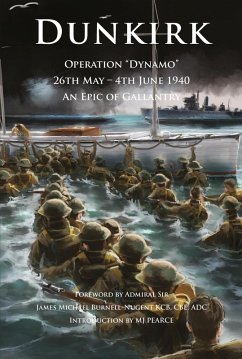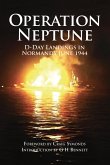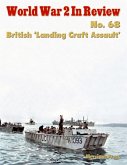The successful evacuation of the British Expeditionary Force from Belgium and northern France through the port of Dunkirk and across adjacent beaches is rightly regarded as one of the most significant episodes in the nation's long history, although Winston Churchill sagely cautioned in Parliament on 4th June that the country "must be careful not to assign to this deliverance the attributes of a victory. Wars are not won by evacuations". Nevertheless, the Dunkirk evacuation, Operation "Dynamo", was a victory and, like many others before it, it was a victory of sea power. The Royal Navy achieved what it set out to do, despite grievous losses, in the teeth of determined opposition. It denied an aggressive and ruthless continental power a potentially war-winning total victory that could have changed the direction of civilization for generations to come. The loss of the main British field army would have enfeebled the nation militarily and psychologically, prompting political upheaval, potentially resulting in a negotiated peace with Nazi Germany on unfavourable terms dictated by Adolf Hitler. The undeniable success of the evacuation was certainly a crucial naval and military achievement but its positive effect on the nation's morale was just as important, instilling confidence in the eventual outcome of the war, whatever the immediate future might hold, and creating optimism in the face of adversity that added "the Dunkirk spirit" to the English language.This edition of Dunkirk, Operation "Dynamo" 26th May 4th June 1940, An Epic of Gallantry, publishes the now declassified Battle Summary No 41, a document once classified as 'Restricted' and produced in small numbers only for official government purposes. This Summary, The Evacuation from Dunkirk, lodged in the archive at Britannia Royal Naval College, Dartmouth, is one of the very few surviving copies in existence and records events in minute detail, being written soon after the evacuation using the words of the naval officers involved. This makes it a unique record and a primary source for the history of Operation "Dynamo" from mid-May 1940 until its conclusion on 4th June. The original document has been supplemented in this title by a Foreword written by Admiral Sir James Burnell-Nugent, formerly the Royal Navy's Commander-in-Chief, Fleet, whose father commanded one of the destroyers sunk off Dunkirk when rescuing troops. In addition, there is a modern historical introduction and commentary, putting the evacuation into context and this edition is enhanced by the inclusion of a large number of previously unpublished photographs of the beaches, town, and harbour of Dunkirk taken immediately after the conclusion of the operation, together with others illustrating many of the ships that took part.
Dieser Download kann aus rechtlichen Gründen nur mit Rechnungsadresse in A, B, CY, CZ, D, DK, EW, E, FIN, F, GR, H, IRL, I, LT, L, LR, M, NL, PL, P, R, S, SLO, SK ausgeliefert werden.









